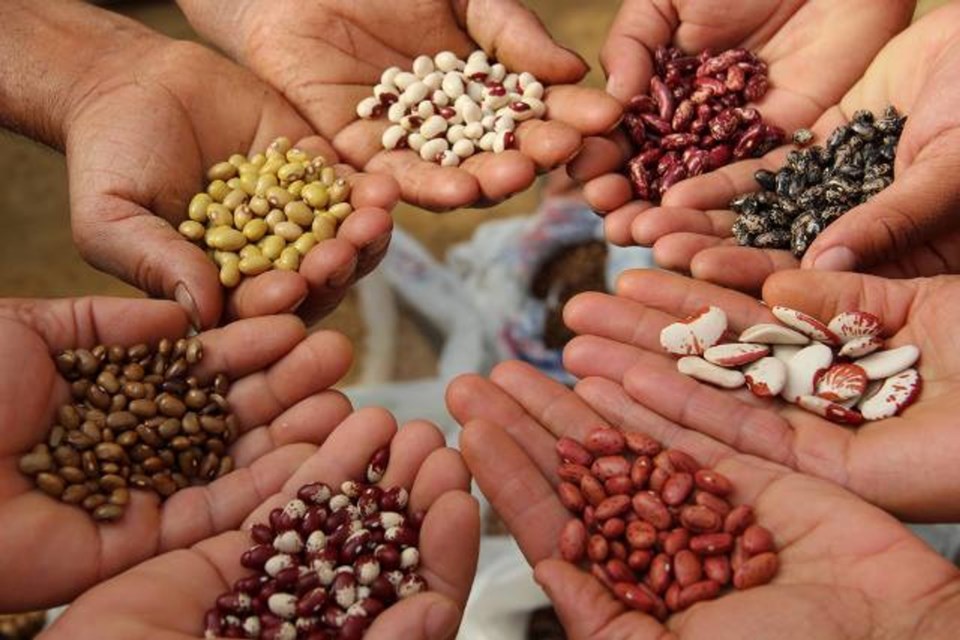Every year around the world, citizen-seed-savers gather to swap seeds they have saved from vegetables, fruits, herbs and plants they have grown. The idea is to promote regional food self-sufficiency and local food security, and access knowledge about growing food.
“Exchanging local seeds helps strengthen local agriculture and success in growing and harvesting,” said Powell River Farmers’ Market manager Juhli Jobi.
“When someone finds a variety of plant that grows well in our climate and then shares it with the community, we all benefit.”
Seedy Saturday takes place Saturday, March 11, at Powell River Recreation Complex. The event also offers workshops, such as how to have a successful winter garden, or how to avoid using harmful pesticides. The gathering attracts not only farmers, but local gardeners and folks who want to learn how to grow food and save seeds.
In this age of uncertainty and rising food costs, learning to grow fruits and vegetables makes sense, as well as supporting local farms by purchasing their products, according to Jobi.
“Everyone only has so much space to work with, and hopes for bountiful harvests, but sometimes certain strains of plants don't do as well in our climate,” said Jobi.
“When we rely on the strength and knowledge of our whole community, the learning curve is greatly reduced.”
Most industrial seeds are created to withstand being shipped long distances; this unfortunately leads to fruits and vegetables not having very much flavour and possibly nutrition.
“We don’t grow enough food to supply ourselves; one of the objectives of the event is to learn to save seeds,” said Seedy Saturday organizer Ellen de Casmaker. “The seeds are the basis of food security. Most seed is imported and none of the big seed houses in Canada grow their own seed.
“West Coast, for example, buys theirs from Israel and the United States, and so if there are difficulties there, we will not have the seed we need,” said de Casmaker.
The qathet region does have many food growers and people who access the farmers' market, but still, “the majority of our community's food comes from local grocery stores,” said Jobi.
Seedy Saturday participants have usually saved seeds from vegetables, flowers, herbs and fruits they have grown that are suitable to our climate and environment, and by exchanging the seeds within the community, more people have access to affordable, tasty and diverse varieties of food.
“One of the reasons cauliflower is $7 right now at the grocery store is because the supply is low,” said de Casmaker.
Jobi said a growing number of people have changed the way they shop.
“They may grow a few things on their balcony or have a series of raised beds in their backyard,” added Jobi. “Some people may have a few chickens or buy local eggs from a neighbour.”
Jobi also emphasized that while some people may eat 75 per cent local, others may be closer to five per cent.
“The range varies but each of us can do our part to help support and grow our local food production,” said Jobi. “Just add one item to your grocery list that you can buy locally and make that change.”
de Casmaker does not believe the qathet region has food sustainability.
“There is no way we can feed ourselves at this time [with only local foods], could we?” said de Casmaker. “We need more farmers and home gardeners.”
As for how and what seeds to save and why, Jobi said to “know the seeds you're planting and know the seeds you are saving.”
“Heirloom varieties are good as seed savers since they have not been modified at all,” added Jobi. “While they may not always produce the largest or perfectly shaped vegetables/fruits, they are dependable as far as results go from one year to another.”
Bees and pollination are important to successful harvests.
“Consider planting some flowers around your garden that pollinators enjoy to help encourage them to visit,” she added.
The event on March 11 is hosted by Powell River Farmers’ Agricultural Institute.
“People can swap seeds, attend workshops and talk to information providers, all focused on growing,” said de Casmaker. “While those who sell seed they grow are permitted, the objective of Seedy Saturday is not the selling of seed, it is the education and community work of seed growers.”




